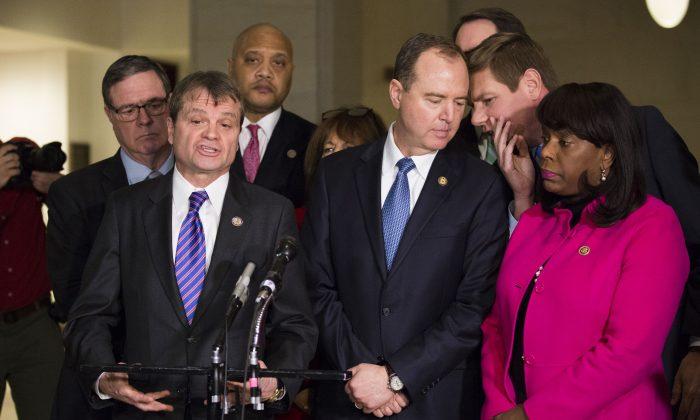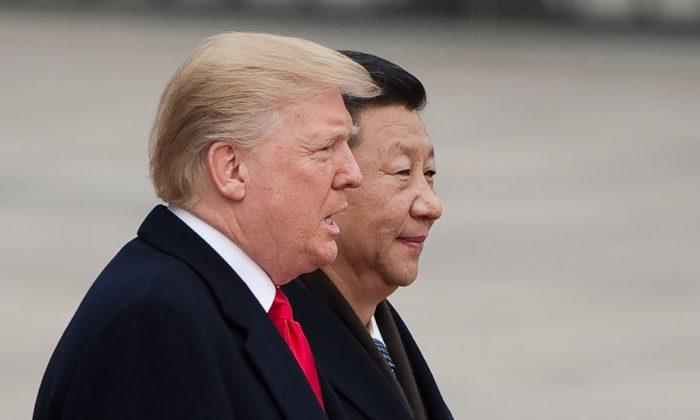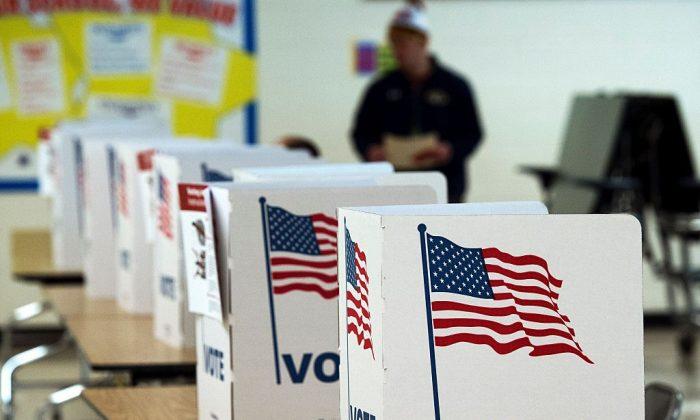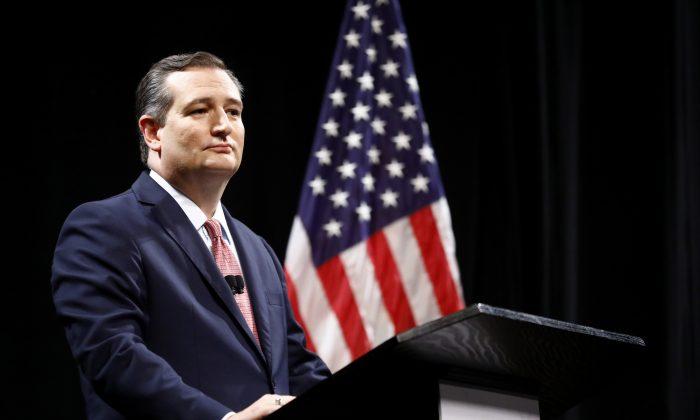On Feb. 2, Devin Nunes (R-Calif.), the chair of the House Permanent Select Committee on Intelligence, released his memorandum on the potential abuse of the Foreign Intelligence Surveillance Act (FISA) by the Department of Justice (DOJ) and the FBI.
The Democrats, led by Adam Schiff (D-Calif.), ranking member of the committee, vehemently opposed the release of the Nunes memo, calling it “distorted,” “misleading,” or “lies.” Unable to stop the Nunes memo, Schiff authored his own memo in response. After much redaction, the Schiff memo was publicized on Feb. 24.
One of the key points of the Nunes memo was that the FBI and DOJ used the Steele dossier as the essential evidence to get a FISA warrant against Carter Page, allowing the FBI access to any electronic surveillance of this Trump associate. The claim in the Nunes memo was corroborated by a declassified criminal referral letter sent by Senate Judiciary Committee chairman Chuck Grassley (R-Iowa) to DOJ.
There are many ways to refute the claim. For example, one can show the dossier was not used as evidence by the FBI and DOJ in the application for the FISA warrant. Alternatively, one can prove it was not sine qua non in the case, and there was actually essential and damning evidence.
The Schiff memo took the second approach. It confirmed the FBI and DOJ used the Steele dossier in Carter Page’s case, but sought to downplay the importance of the dossier. Instead of being the “essential” evidence, the memo argues, the FBI and DOJ only used the dossier narrowly.
According to the Schiff memo, besides the dossier, the FBI and DOJ had “compelling evidence and probable cause” to believe Page was working with the Russians and was a recruitment target of Russian intelligence long before the bureau obtained the dossier. The FBI interviewed Page multiple times, including once in March 2016, before the dossier was produced.
In 2013, the DOJ indicted three Russians, two of whom allegedly tried to recruit Page. The Schiff memo mentioned this fact. Yet, the FBI did not apply for a FISA warrant against Page from 2013 to 2016, prior to the production of the dossier. Moreover, Page was not arrested or accused of any wrongdoing. Undoubtedly, the FBI and DOJ had nothing on Page before 2016. Otherwise, Page would probably have suffered a fate similar to that of the three Russians.
Only after the Hillary Clinton campaign delivered the dossier to the bureau, did the FBI and DOJ move against Page. Without the dossier, the FBI had no case. Page’s volunteer role in the Trump campaign suddenly made him a highly valuable surveillance target. The officials at the FBI may have hoped that they had hit the mother lode where information of Trump’s alleged collusion with Russia could be easily mined.
And so the dossier is not an insignificant piece of evidence, as the Schiff memo claimed. Without it, the FISA warrant against Page would not have been granted.
A more serious allegation in the Nunes memo was that the FBI and DOJ hid from the FISA court the fact that the Steele dossier was funded by the Democratic National Committee and the Hillary Clinton campaign.
The Schiff memo claims the FBI and DOJ were transparent. For example, according to the memo, DOJ told the FISA court in its application: “The FBI speculates that the U.S. person was likely looking for information that could be used to discredit candidate #1’s campaign.”
Actually, the FBI knew for a fact the Steele dossier was an opposition research product commissioned by the DNC and the Hillary Clinton campaign. The FBI also knew Steele was rabidly against Trump and was working to defeat Trump. It did not have to “speculate” anything.
The bureau liked Steele’s work so much that later it even considered hiring him to get more dirt on Trump. If in its FISA application the FBI used speculation about the motives of those who produced the dossier, the bureau lied to the court.
The Schiff memo also claims Steele’s credibility was based on his past reporting on Russia. “The FBI has undertaken a rigorous process to vet allegations from Steele’s reporting, including with regard to Page,” says the memo. The FBI may have vetted Steele’s past work. The question is if the FBI vetted the Steele dossier rigorously.
The Schiff memo says yes, but fails to provide evidence of vetting. Former FBI Director James Comey disagreed with the memo as well, calling the dossier “salacious and unverified.” Till today the Steele dossier remains a minimally corroborated document.
One of the goals of the Schiff memo is said to “correct the record.” It failed. On one hand, it affirmed the Steele dossier was presented as the essential evidence to the FISA court, which was a key argument of the Nunes memo. There is no record to correct on this matter. On the other hand, the Schiff memo contains much misinformation. Attacking the Nunes memo with lies cannot “correct the record.” It can only distort the record and mislead the public.





Friends Read Free